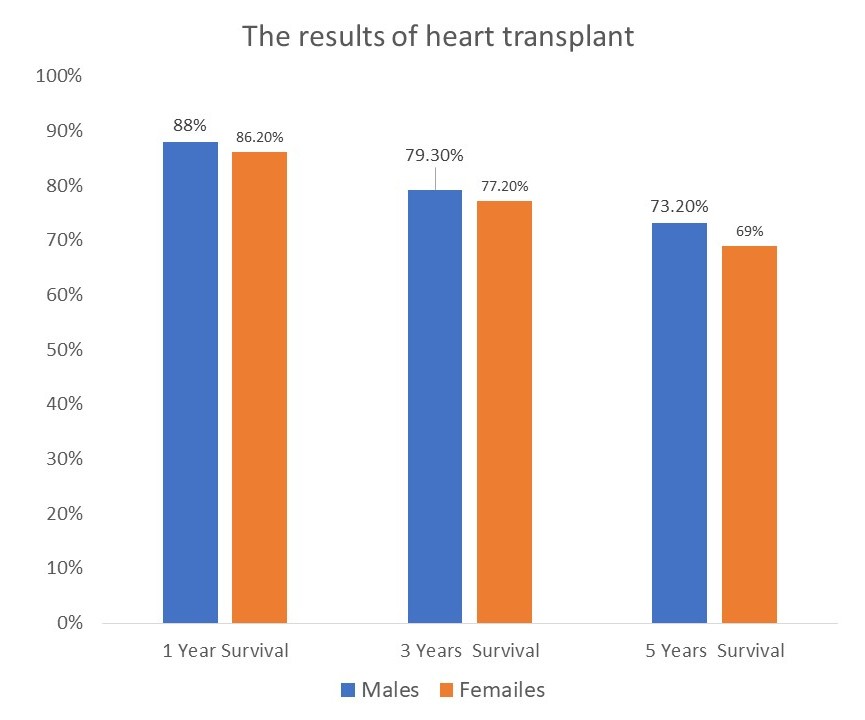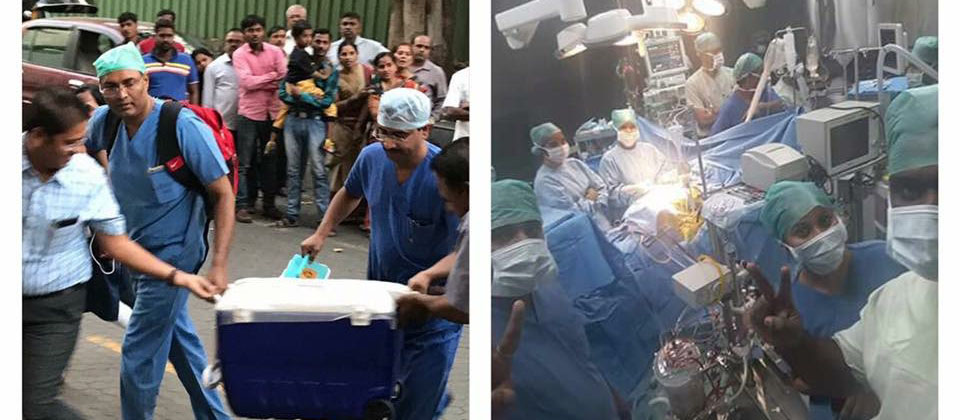HEART TRANSPLANT SURGERY IN PUNE – THE INDICATIONS AND RESULTS.
It has been 50 years since the First Heart transplant was performed in South Africa by Dr. Christian Barnard on the 3rd of December 1967. This heroic feat was applauded world wide and it changed the perception that patients with end stage heart disease had no other option than lead a life with a fear of dying any moment. The First Heart Transplant in Pune was performed on the 5th of March 2017.
Heart Transplant surgery is indicated in individuals with intractable heart failure who face the prospect of certain death without heart transplant surgery. The diseased heart is replaced with a healthy heart from a brain dead donor.
Some of the indications of heart transplant are as follows:
- NYHA III or IV despite optimal medical therapy.
- Malignant ventricular arrythmias refractory to medical therapy.
- Inoperable ischemic or valvular heart disease with refractory symptoms.
- Congenital heart defects, hypertrophic obstructive cardiomyopathy, localised cardiac tumors.
An example of a typical heart transplant recipient history is a 30 year old person, active, office going person. No past/family history of heart disease. He develops fever lasting 5 days.The patient recovers and is given symptomatic treatment. He develops progressively increasing dyspnea on exertion over the next few months. A 2 D Echocardiogram reveals – Dilated cardiomyopathy and progressively worsening of the left ventricular function, which is consistently less than 25%. The patient condition continues to worsen and he develops congestive heart failure refractory to medical treatment. The patient has repeated admissions to CCU and Dobutamine infusions. The patient subsequently presents to the heart failure clinic and is placed on the Heart Transplant List.
The contraindications for a heart transplant are age more than 65 years. presence of active infection ( pneumonia / UTI etc ), severe pulmonary hypertension with PVR > 6 Wood units despite vasodilator challenge, chronic renal disease ( Creatinine clearance < 25 ml / min ), chronic lung disease with loss of more than 40% of lung function ( emphysema / bronchiectasis ), untreatable liver ( cirrhosis ), severe neurological deficit, psychological instability, continuing tobacco, alcohol or drug abuse.
We have set up a dedicated Heart Failure Clinic (HEART REVIVAL CLINIC) at Sahyadri Hospitals, where patients who have the above issues can get evaluated by our Heart Team. The Heart Team consists of Heart Transplant Surgeon Dr Manoj Durairaj, Cardiologist, Cardiac Anesthetist, Transplant physician, Transplant coordinator and medical social worker. All aspects of the patient’s problems are addressed in this special clinic, which includes medical and social issues.
Once deemed suitable for Heart Transplant after initial screening and acceptance by the patient and his/her relatives, the patient is admitted for evaluation.
The patient evaluation consists of the following: Blood Grouping, Rh typing, routine laboratory studies ( CBC, ESR, Metabolic profile, RFTs, LFTs, Lipid profile, Thyroid function tests, PT/PTT, PSA ) Urine and Stool – R/M, ECG, CXR, Serology – Hep B, Hep C, EBV, CMV, HSV, VZV, Toxoplasmosis, HIV testing and PPD skin testing with controls. We also perform specific tests like Echocardiography and / or MUGA scan, pulmonary function tests, cardiopulmonary stress testing (VO2 max assessment ), Right heart catheterisation ( PVR ), Panel reactive antibody ( PRA ) and HLA phenotype. Cultures are also sent from Skin ( for MRSA – nasal, axilla, ante-cubital ) , Urine C/S and Stool C/S. Cancer screening is conducted routinely and the patient receives vaccinations ( Pneumovax, Hep B Series, Influenza). The patient is then discharged and requested to be ready and prepared at any given time for the transplant call. The recipient is placed on the Zonal Transplant Coordination Committee waiting list.
The donor is usually a young male or female who has suffered a road traffic accident with severe head injury and is declared Brain Dead by the expert team. Once such an individual’s relatives give appropriate consent for Organ donation then the Heart Team assesses the donor and evaluates whether the heart is suitable for transplant. ABO compatibility and appropriate weight compatibility is the most important criteria. The donor should be hemodyamically stable with appropriate inotropic support, age <50 years, no evidence of coronary artery disease and structural heart disease especially rheumatic valvular heart disease, no sepsis or malignancy.
The time duration between removal of the heart from the donor and the establishment of perfusion in the recipient’s body ( Ischemic time) should be below 3 hours. If the donor is from another hospital in Pune, then a GREEN CORRIDOR is a used to expediate the inter hospital transfer time. If the donor is from some other city, the option of Air lifting the heart is availed. Post transplant the patients are placed on medications for immuno-suppression to prevent rejection and are kept on regular follow up.

The results of heart transplant have considerably improved over the last 20 years.
The results of heart transplant have considerably improved over the last 20 years. The results are 1 year survival: 88.0% (males), 86.2% (females), 3 year survival: 79.3% (males), 77.2% (females) and 5 year survival: 73.2% (males), 69.0% (females).
To conclude, heart transplant surgery has excellent outcomes for appropriately chosen patients with intractable heart failure. According to me , this option offers a new lease of life for young patients who are incapable of any physical activity and are home bound and face certain death if left untreated.

